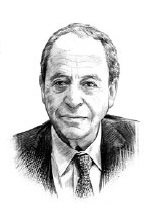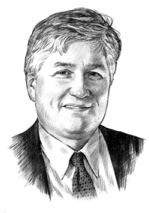Xi's view at Davos still resonating in the world






President Xi Jinping's statements, a year on, continue to be an important stage-setter for the argument that international trade must continue to flow openly and freely. The other figure who is making that case, and will no doubt do so this year at Davos, is President Macron of France, who has also spoken out for the importance for maintaining a liberalized global trading system. If China and Europe can cooperate in this area, it will be an important signal to the wider world.
The discussion of the Belt and Road Initiative has now become a major global phenomenon. There is considerable interest in Europe, Asia and beyond about the concept. Now the phase of implementation has to begin; issues of financing, security, and governance frameworks are likely to be central to Belt and Road discussions in the year to come.
China's role continues to be central to this year's World Economic Forum meeting. Issues of shared human values, economic integration and engagement with international crises, whether in the Middle East, South Asia or elsewhere, continue to be central global concerns, and China's attitude toward these questions is crucial. Xi's speech last year set an agenda, and it is important that China continues to express a collaborative and engaged viewpoint as these questions are debated in the year to come.
-- Rana Mitter, director of the new Dickson Poon University of Oxford China Centre

With regards to President Xi Jinping's comments on globalization and the Belt and Road Initiative last year, the concrete impact and outcomes are to be seen in transnational infrastructure development being incorporated across the world. Nations are not thinking of just building infrastructure for themselves but for them and their neighbors. The world cannot do it on a national basis any more. That is what they take from President Xi's words. It must be transnational and cooperative with respect for differing national systems.
The world is dealing with many contrary features. There is a battle for power in the Middle East and around Ukraine to give two examples. There is a concern about inequality and protectionism. There are attempts to protect G7 from the growth of the developing nations. The developing nations are trying to secure more growth to enable them to escape poverty. There are many more such examples. The effect of his words and ideas may take 5-10 years to take hold and change centuries of using conflict to enable countries to achieve benefits at the expense of others. But people are beginning to ask for new ways as inequality and austerity increasingly hurt the majority of nations. It is inequality that is spurring the ideas of President Xi. It is the needs of the people to have better lives and escape poverty that will drive, and are, driving change. Enlightened leaders across the political spectrum are heading the words of President Xi but it will take time to reverse the ways of hundreds of years of history.
-- Stephen Perry, chairman of trade association The 48 Group Club

I think that Xi Jinping's concept of a "shared future for humankind" is still quite relevant in a world where Donald Trump believes that the parochial economic interests of the US take precedence over a global approach that is marked by increasing trade, capital flows, and economic integration. It is of little wonder that Trump's willingness to withdraw the US from its global commitments likely inspired this year's theme of "Creating a Shared Future in a Fractured World."
While Trump will likely not care, Xi's observation from his 2017 Davos speech continues to resonate today in light of Trump's populist and protectionist rhetoric: "Whether you like it or not, the global economy is the big ocean that you cannot escape from." I remain skeptical that Trump will offer a similarly optimistic vision of economic globalization and mutual cooperation.
-- Jon Taylor, a China scholar and professor of Political Science Department at Houston's University of St. Thomas
- Celebrating Spring Festival with Xi
- Celebrate Chinese New Year in Shandong style
- Our shared festival: How do Malaysian Chinese celebrate the Chinese New Year?
- Galloping toward a peaceful year
- People across the Taiwan Strait celebrate Spring Festival together
- 8 dead, 2 injured after fireworks retail store blast, fire in East China

































